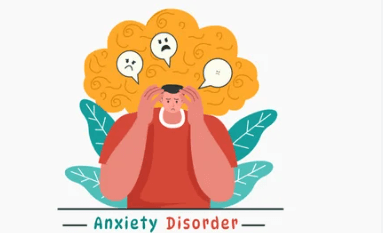Art:39n4lsvs0i8= Anxiety Disorder

Art:39n4lsvs0i8= Anxiety Disorder constitute a profound mental health concern, marked by persistent apprehension that can severely impact an individual’s quality of life. While the symptoms are often recognizable, the underlying causes remain complex and multifaceted, involving both genetic predispositions and environmental influences. Furthermore, effective management necessitates a thorough understanding of various coping strategies and treatments that can enhance resilience. An exploration of these factors not only sheds light on the nature of anxiety disorders but also raises critical questions about the efficacy of current interventions and the potential for innovative approaches in treatment.
Understanding Art:39n4lsvs0i8= Anxiety Disorder
Art:39n4lsvs0i8= Anxiety Disorder represent a complex interplay of emotional and physiological responses that can significantly impact an individual’s daily life.
These disorders often arise from various anxiety triggers, which may include stress, trauma, or significant life changes.
The emotional impact can be profound, leading to feelings of helplessness and isolation.
Read More Art:818uvqexl84= Hispanic Heritage Month
Understanding these dynamics is crucial for fostering resilience and promoting pathways to healing and personal freedom.
Common Symptoms and Effects
Recognizing the manifestations of anxiety disorders is vital for understanding their impact on individuals.
Common symptoms include physical symptoms such as increased heart rate, sweating, and fatigue, alongside profound emotional impact, including persistent worry and feelings of dread.
These experiences can be overwhelming, often hindering one’s sense of freedom and daily functioning, underscoring the importance of awareness and support in navigating anxiety challenges.

Causes and Risk Factors
Understanding the intricate web of causes and risk factors associated with anxiety disorders is essential for fostering effective treatment and support.
Genetic predisposition plays a significant role, as certain individuals may inherit a vulnerability to anxiety.
Additionally, environmental triggers, such as traumatic experiences or chronic stress, can exacerbate these predispositions, creating a complex interplay that shapes one’s mental health journey.
Coping Strategies and Treatments
Coping with anxiety disorders often requires a multifaceted approach, combining various strategies and treatments tailored to the individual’s needs.
Mindfulness techniques, such as deep breathing and meditation, help ground individuals in the present moment.
Additionally, cognitive therapy empowers individuals to challenge negative thought patterns, fostering resilience.
Together, these methods create a supportive framework, promoting emotional freedom and enhancing overall well-being in the face of anxiety.
Read More Art:436rvw1i_Pk= Bad Guys
Conclusion
Art:39n4lsvs0i8= Anxiety Disorder can be likened to a storm cloud that looms over daily life, casting shadows of worry and dread. Recognizing the multifaceted nature of these disorders, including their symptoms and underlying causes, is essential for effective management. By employing targeted coping strategies and treatments, individuals may navigate through the turbulence, fostering resilience and emotional well-being. Ultimately, understanding and addressing anxiety is crucial for illuminating the path toward a brighter, more balanced existence.





